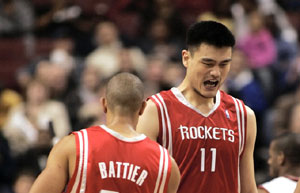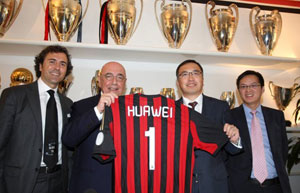A report by the Economist Intelligence Unit, The big league? The business of sport in China, says the opening ceremony for the 2008 Beijing Olympics drew a domestic television audience of 842 million, and more than 100 million Chinese watched the event online. In particular, more than 300 million people in China tuned in to watch Olympic table tennis matches.
However, when it comes to sports marketing and advertising, companies are going beyond mere visibility and reach.
 |
 |
"It means more than just buying space on shirt fronts," says Dave McCaughan, managing director of marketing agency McCann Hong Kong and director of McCann Truth Central, Asia Pacific.
"Decades ago, we saw the movement of brands from China, Turkey and other developing countries buying sponsorships of teams and individual sports outfits. That was a crude way to gain some recognition," he explains.
"But sports marketing is more sophisticated now. Brands want to associate with the events that appeal to people in Asia as a way to highlight their brand attributes and product offerings."
Sports sponsorship and advertising have become elevated to the corporate strategic planning conversation. They are being discussed in the context of integrated marketing programs that can take advantage of the reach of traditional advertising as well as the emotional and experiential benefits earned through partnerships with sports.
McCaughan says that Asian markets are still very heavy users of celebrity in all forms of marketing. In fact, the use of celebrity is a way of establishing and maintaining brand meaning. He cites US basketball star Michael Jordan, who began endorsing Nike in the 1980s, as an example. Now many brands are using celebrities, including Asian athletes, to give meaning to their brand equity.
For instance, it was reported that during the Beijing Olympics, basketball player Dwyane Wade and tennis star Serena Williams, both from the US, had interacted quite frequently with the Chinese media and chatted online with Chinese sports fans, to help their brands penetrate the rising Chinese market.
 |
 |
